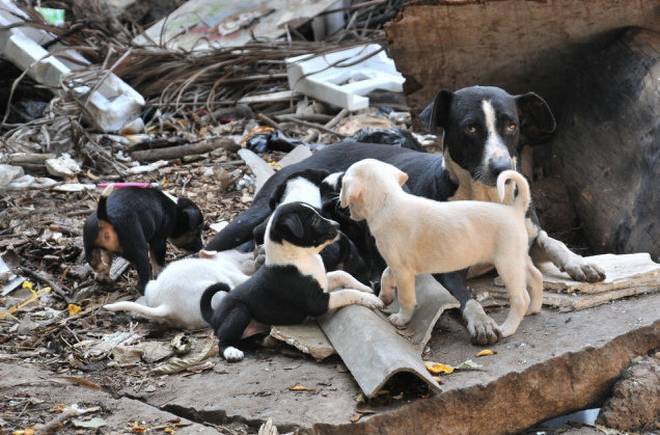
The idea of neutering and spaying cats and dogs is to reduce animal overpopulation in the face of increasing urbanization at the expense of wildlife and the lack of other ways to protect and care for animals after encroaching on their habitats and resources. Neutering, which involves removing the testicles of males, and spaying, which involves removing the uterus of females, is considered an ethical option due to the circumstances imposed on the animal itself and those interested in protecting it. This is in contrast to unethical options employed by society and official institutions, such as shooting and poisoning. Advocates for animal rights and protection try to safeguard animals under unnatural circumstances and face the consequences of habitat loss and wildlife decline by attempting to follow the most humane methods within an existing detrimental situation imposed by both official authorities and society.
However, some people take an opposing stance on the idea of spaying and neutering for various reasons. Still, we have noticed that this stance is usually taken by those who have no reservations about killing animals for human benefit. In this article, we summarize the key points related to this topic, taking into consideration the best interests of animals from a rights perspective:
- Failure to properly dispose of excess food leads to a significant population of dogs and cats in populated areas. If waste is disposed of correctly, and municipalities deposit it in landfills before nightfall, it will direct these animals to where food is available, naturally reducing their numbers in residential areas.
- Female dogs give birth twice a year, with each litter consisting of 6 to 9 puppies. Their fate is often neglect, being run over, suffering from diseases, and being poisoned or shot. Is this considered an ethical option that eases the conscience of society? This is especially true in the absence of shelters and sanctuaries to protect them.
- Spaying female dogs is an essential method to prevent uterine infections and mammary tumors, contributing to the overall health of female dogs. Neutering males reduces the likelihood of testicular and prostate cancer. Sterilized and neutered dogs tend to have longer, healthier lives.
- Spaying and neutering are surgical procedures performed under general anesthesia. Dogs usually return to their normal activities within 24-48 hours.
- Dogs during their mating season become aggressive towards each other and sometimes towards humans. This leads to fights resulting in severe injuries and even death among the animals involved. Spaying and neutering help modify this behavior during mating seasons.
- The question, “Who are we to decide on behalf of the animal and remove its reproductive organs?” is a valid ethical question. Still, we are trying to provide more humane and ethical options to protect the animals for now. We are faced with two options: the first is to let a large, increasing number of puppies be born on the streets, destined for neglect, being run over, diseases, poisoning, and shooting. The second option is to reduce their population while preserving the animal’s health and modifying its social behavior, leading to a better relationship with both other animals and humans.
- Implementing a national program to sterilize street animals does not mean seeking their extinction. This contradicts all principles of animal and environmental rights because the program should be implemented based on scientific foundations that preserve at least 25% of animals without sterilization while vaccinating all of them against diseases.
- Sterilizing animals encourages people to adopt and raise them in their homes because no one can handle the continuous reproduction of animals and their behavior during mating season. Thus, sterilization contributes to spreading a culture of raising and caring for animals as family members and friends in a healthy environment within the family. It also encourages a sense of responsibility and compassion among children, which has positive repercussions on society as a whole.
- Sterilizing street animals is a practice applied by countries concerned with animal protection and improving the surrounding environment under legal and ethical supervision of all practices in this regard.
- Sterilizing animals will spare them the tension and disruption they experience during the mating season, and there is no scientific evidence that animals lack the sense of motherhood and fatherhood due to their hormonal connection primarily.
Finally, as animal rights advocates, we do not choose the fate of animals on their behalf. All we are trying to do is create a safe environment for animals and humans alike in Palestine.



